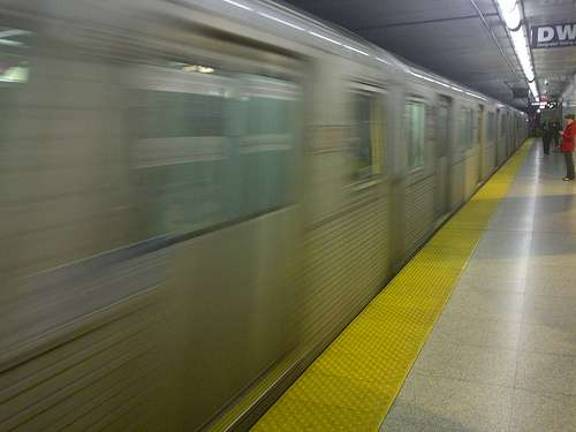Subway Fares Likely to Rise in 2013

When representatives for the MTA were summoned to a New York City Council Transportation Committee Hearing on Tuesday, Mar. 6, officials had hoped to learn how the transit authority plans to spend its money over the next two years. And while some may have held out hope for improvements to the City's subways and buses, many members of the public were once again left disappointed. During the hearing, the MTA revealed that next year's proposed 7.5 percent fare hike, which is estimated to bring in an additional $400 million in revenue, would be used to cover rising employee pensions and health care benefits, according to testimony by Hilary Ring, the Director of the MTA's Government Affairs department. "Essentially the fare increase and the toll increase is almost dollar-for-dollar being eaten up by our increase in pension and retiree health care costs," Ring said. This information comes as a disappointment to many commuters (including Transportation Committee Members), who had hoped that some of this revenue might have used to service the MTA's subway cars and buses, or to re-open routes that had been closed in 2010. Council members, such as Transportation Committee Chair James Vacca had difficulty digesting the news, however. "It's hard for me to believe that we're going to have that type of an increase and we're going to have no restoration and no improvements in services," Councilman Peter Koo also commented, "this is a first-world city and we cannot even do basic maintenance." MTA officials, however, cannot address maintenance or service issues while remaining within their current financial constraints. To their credit, however, the MTA has not been stagnant and has explored other revenue sources like leasing or selling real estate the authority owns. Still, without drastic reductions in cost, the MTA's Board is expected to vote in favor of the increases this December, according to Ring's testimony. If that happens, and if the board votes to raise fares again in 2015, the MTA would bring in an additional $900 million, while its budget currently sits at around $12 billion. Counteracting these gains, however, is the estimated $810 million in rising pension and healthcare costs over the same period. Unfortunately for riders and bridge-goers, 2013 would mark the fifth fare increase in the last eight years, and would come at the heels of 2010's service reductions, which saw a reduction in service to Access-A-Ride, an elimination of the Lowest-Ridership Weekday Express Bus, as well as the W and M lines, a reduction in the V line, and the elimination of half-price student metro cards, all in an effort to reclaim slightly more than $150 million annually. That leaves just one financial resource left to aid the MTA: The city. Speaking to reporters, Councilmember Vacca seemed open to consider adding to the roughly $882 million the city is expected to contribute to the MTA's New York City Transit, if the deal was reasonable. "I think this year the city may have an opportunity to look at that," he said. "I think that we're in a little better financial situation than we have in the past, but then of course we want assurance from the MTA. that if we do that, what does that mean, and what are they coming to the table with in so much as their resources and their revenue?" That question, however, remains to be answered.